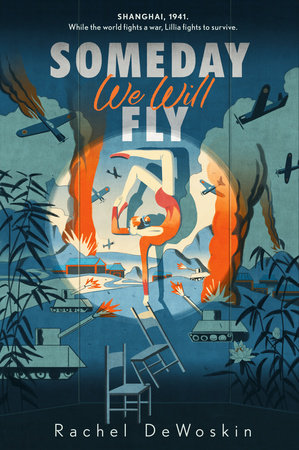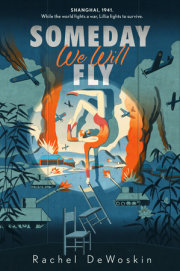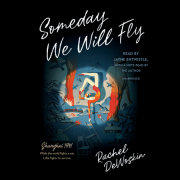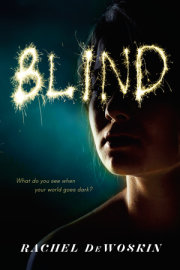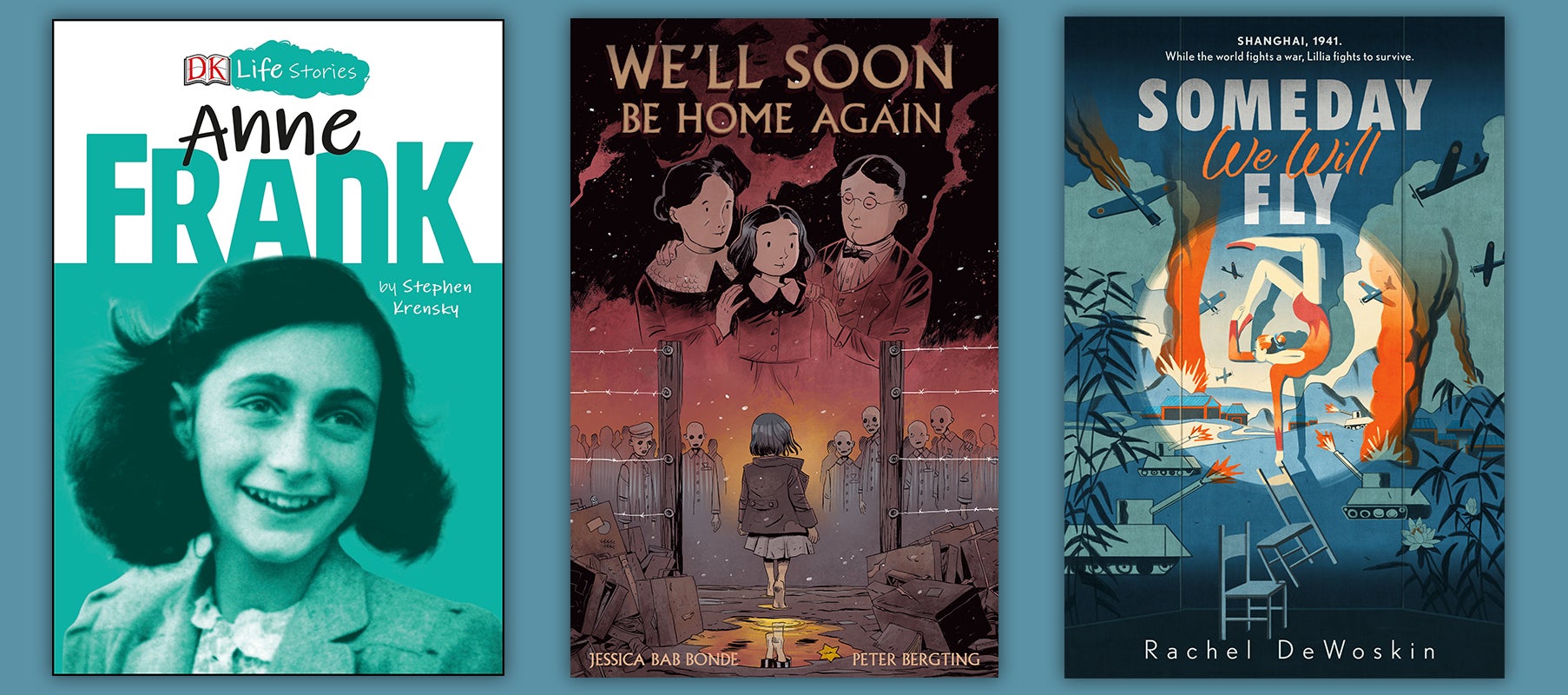Heime, Home1940
I first saw Shanghai from over my father’s shoulder. I was feverish the final two weeks on the ship, as if my hair had been protecting my head and once I was without it, sickness leaked in. I missed the last three ports: Penang, Singapore, Hong Kong. Of course I wouldn’t have been allowed off the ship anyway, but I was sorry not to have seen them. When I woke, soaked with broken fever, we were descending the ship’s gangplank, Papa carrying Naomi, me, and all of our things. So I guess it was for the best that we had so little with us.
As far as I could see there were human beings, throbbing with heat, an electric mob of running, waving, shouting. There were animals and also men pulling carts, racing, climbing onto and off of boats so rickety they looked as if they’d been made by hand from paper, people entering and exiting buildings; everywhere store fronts and signs covered with slashes and dots that made a language I couldn’t understand. I reached across Papa’s neck and held Naomi’s hand. “What day is it?”
I heard him say, “July.” We had been traveling for over a month, and now it was July and we were here, in Shanghai. Out from the endless rush of people carrying meat, lumber, bricks, passengers, giant pieces of glass emerged a man on a bicycle. He was the first person I could see individually somehow. There were so many of us. He had brown skin and bright eyes, and was watching the street ahead of him. How was he balancing his bicycle? The back was stacked with so many packages it looked like a house made of boxes. A pole crossed his neck and shoulders; from each end hung pails that seemed to pull the metal down, bending it on either side and digging a groove in his flesh. He moved so slowly through the hot street. He was the first Chinese person I’d seen, and he looked the same as anyone else, but also different. I felt a wild confusion that resembled excitement. What did I look like to those who weren’t me?
Another man pulled a two-wheeled cart by, fast. He was thin as a single bone. In his cart perched a woman whose white hair flew behind her. She held a fur blanket with an animal’s head still attached. It had teeth. I was surprised to see a blanket in such heat. Only when the man veered around them did I notice the group of men in
payos, side-curls. Jewish men, walking toward the dock, moving and speaking as if none of the chaos around them were happening, as if it weren’t a thousand degrees and impossible to breathe. As if we hadn’t landed on another planet. I watched them, amazed by their calm, by the possibility that they—and we—could belong here.
An open-backed truck arrived and we climbed on, Papa lifting Naomi and me, saying it was from a Jewish service, had come to collect us. We were packed tight enough to be held up by each other’s bodies. I smelled my own fear, all our sweat, a hundred broken fevers. I wished desperately for a shower. We’d washed in a small cubicle on the ship. I was hoping so much for an actual bath here. We were all, even chatty Alexi, too shocked to speak. Except Naomi, who shouted, “Ah, ah, ah,” from Papa’s arms.
Her eyes had begun to look green—they’d been gold before, the color of coins or a lion’s mane. I was glad for this change and relieved she had no words. Even if we’d known what to say about this place, what language would we have used?
The dock was behind us, baking in the sun, crowded with men, some bearded with turbans, others in white shirts and khaki shorts, still more in military uniforms. I hoped to see the religious men again, but they were gone. I knew, in a strange and certain way, just how alike we suddenly were, those men and I. Even though all that connected us was being here, being Jewish. In that instant of looking out at the city, I saw everyone else and also saw myself among them, another stranger.
Copyright © 2020 by Rachel DeWoskin. All rights reserved. No part of this excerpt may be reproduced or reprinted without permission in writing from the publisher.

